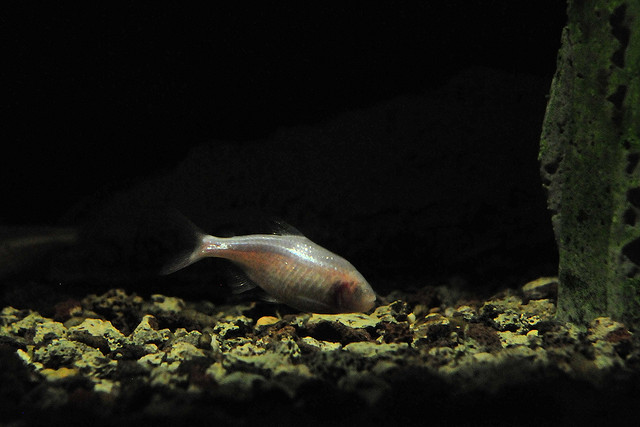Search Results for Tag: Mexico
Ever hear of evolution ‘in reverse’?
How do you understand the term “evolution?” It’s synonymous with progress, development, advancement, right? But, sometimes evolution can also change direction.

Astyanax Mexicanus, a blind cavefish. Photo credit: CC BY-NC-SA 2.0 by Joachim S. Müller/flickr.com: http://bit.ly/1kcBaoO
Evolution is usually associated with developing new features to be able to adapt to environmental changes in certain regions. But, sometimes evolution can also go the other way. Called “regressive evolution,” the phenomenon describes nothing else but advancing in evolution by losing certain abilities or traits.
Cave-dwelling species, in particular, are affected by regressive evolution. These species have originally lived above ground and later, by geological events, were trapped below the earth’s surface. A very drastic example is Astyanax mexicanus, a blind and almost colourless, transparent fish species living in Mexican caves. It has a surface-dwelling counterpart that looks very much the same, just add a silverish color and, well, eyes. Both are the same species and are able to interbreed. In fact, the cavefish have eyes as embryos, but they never become fully developed. Instead of eyes, cavefish navigate with a tool that all fish have, a sensory system. But compared to thir overground counterparts, the blind fish system is about 50 times more effective.
It’s possible to find other examples in different habitats. Cimicidae (article in german), for example, have lost their ability to fly by regressing their wings during evolution. This also applies for lice (article in german). Snakes ran around on legs and feet a few million years ago, terrestrial vertebrates once had gills. And here’s another example we all know very well: humans. We lost our proud, ape-like tails during the process of evolution.
Do you see that as a loss? 🙂
Education, the key to save the climate?
Germany's Alexander von Humboldt Foundation awards scholarships to young people from emerging and developing nations. They spend time in Germany working with organizations or studying at universities, gaining expertise on how to improve climate protection in their home countries. GLOBAL IDEAS met up with one of these scholarship holders: Kristy Pena Munoz, an environmental engineer from Mexico. She's an expert on biogas extracted from sewage sludge.




Feedback